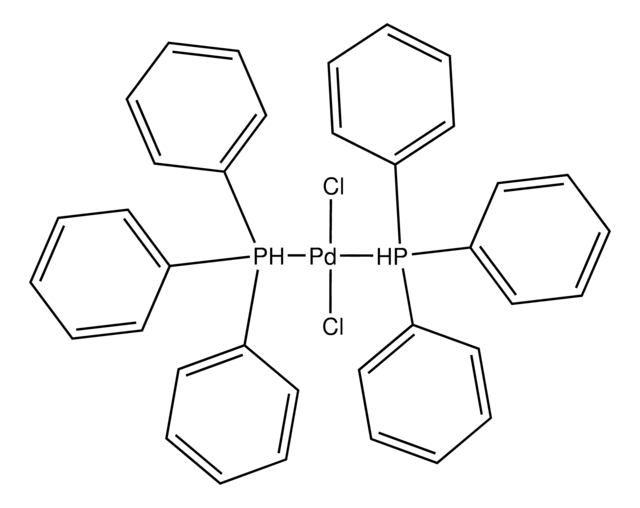655090
3-Methyl-1-butylboronic acid
Synonym(s):
Isopentylboronic acid
Sign Into View Organizational & Contract Pricing
All Photos(1)
About This Item
Empirical Formula (Hill Notation):
C5H13BO2
CAS Number:
Molecular Weight:
115.97
MDL number:
UNSPSC Code:
12352103
PubChem Substance ID:
Recommended Products
form
solid
mp
80-91 °C
storage temp.
2-8°C
SMILES string
CC(C)CCB(O)O
InChI
1S/C5H13BO2/c1-5(2)3-4-6(7)8/h5,7-8H,3-4H2,1-2H3
InChI key
UVMWVBMFEDQYRW-UHFFFAOYSA-N
Application
Reactant for:
- Selective copper-promoted cross-coupling with aromatic amines
- Synthesis of indazole based analog sensitive Akt inhibitors
- Preparation of alkylarenes via tetraphosphine-palladium-catalyzed Suzuki cross-coupling with aryl halides
Other Notes
Contains varying amounts of anhydride
Storage Class Code
13 - Non Combustible Solids
WGK
WGK 3
Flash Point(F)
Not applicable
Flash Point(C)
Not applicable
Personal Protective Equipment
dust mask type N95 (US), Eyeshields, Gloves
Certificates of Analysis (COA)
Search for Certificates of Analysis (COA) by entering the products Lot/Batch Number. Lot and Batch Numbers can be found on a product’s label following the words ‘Lot’ or ‘Batch’.
Already Own This Product?
Find documentation for the products that you have recently purchased in the Document Library.
Reuven Rasooly et al.
Journal of food protection, 75(5), 951-954 (2012-05-09)
The potential use of ricin as an agent of biological warfare highlights the need to develop fast and effective methods to detect biologically active ricin. The current "gold standard" for ricin detection is an in vivo mouse bioassay; however, this
Reuven Rasooly et al.
The Journal of biological chemistry, 287(33), 27924-27929 (2012-06-27)
Ricin is a highly toxic protein produced by the castor plant Ricinus communis. The toxin is relatively easy to isolate and can be used as a biological weapon. There is great interest in identifying effective inhibitors for ricin. In this
Reuven Rasooly et al.
Toxins, 5(8), 1447-1461 (2013-08-21)
Aflatoxin-producing fungi contaminate food and feed during pre-harvest, storage and processing periods. Once consumed, aflatoxins (AFs) accumulate in tissues, causing illnesses in animals and humans. Most human exposure to AF seems to be a result of consumption of contaminated plant
Reuven Rasooly et al.
PloS one, 8(8), e71682-e71682 (2013-08-14)
Gene expression in transduced mammalian cells correlates with virus titer, but high doses of vector for gene therapy leads to toxicity in humans and in animals. Changing the optimal tissue culture medium by adding low levels of environmental stressors, such
Samuel J Yang et al.
SLAS discovery : advancing life sciences R & D, 24(8), 829-841 (2019-07-10)
The etiological underpinnings of many CNS disorders are not well understood. This is likely due to the fact that individual diseases aggregate numerous pathological subtypes, each associated with a complex landscape of genetic risk factors. To overcome these challenges, researchers
Our team of scientists has experience in all areas of research including Life Science, Material Science, Chemical Synthesis, Chromatography, Analytical and many others.
Contact Technical Service







